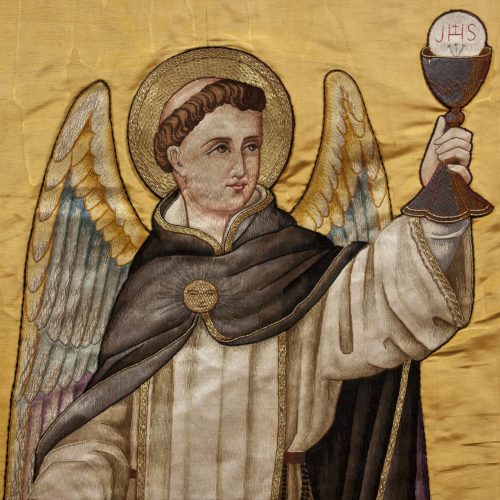10 January 2024
St Thomas Aquinas on "Thanksgiving" - Year of Prayer 2024
By Joey Belleza, PhD (Cantab.)
In his Angelus address yesterday, 21 January 2024, Pope Francis said the following:
The coming months will lead us to the opening of the Holy Door, with which we will begin the Jubilee. I ask you to intensify your prayer to prepare us to live well this event of grace, and to experience the strength of God’s hope. Therefore, today we begin the Year of Prayer; that is, a year dedicated to rediscovering the great value and absolute need for prayer in personal life, in the life of the Church, and in the world. We will also be helped by the resources that the Dicastery for Evangelization will make available.
In these days, let us pray especially for Christian unity, and let us never tire of invoking the Lord for peace in Ukraine, Israel and Palestine, and in many other parts of the world: it is always the weakest who suffer the lack of it. I am thinking of the little ones, of the many injured and killed children, of those deprived of affection, deprived of dreams and of a future. Let us feel the responsibility to pray and build peace for them!
In the previous reflection, we considered the first part of prayer, oration, as a posture of humility before the God to whom we raise our minds and hearts. In this refleciton, we consider a second part of prayer according to the division of Saint Thomas Aquinas: thanksgiving.
Whereas oration signifies a general calling on the name of the Lord, thanksgiving gives more concreteness and specification to our cry. We explicitly acknowledge God’s greatness by recalling the many wonderful things he has done for his people throughout the ages. Thanksgiving is thus tied to memory, and our cry to God is always accompanied by memorializing something real which God has accomplished for us. From childhood we are taught to thank people for what they have done for us, no matter how big or small the deed; how much more should we express our thanks to the God who holds us and all creation in being at every instant?
The notion of thanksgiving is so central to Christian prayer that it gives its name to the very sacrament of Christ’s Body and Blood. Our word “Eucharist,” derived from the Greek eucharistia, means “thanksgiving.” At each Mass, we are reminded that Christ “gave thanks” before blessing the bread and wine; and this is again linked to the notion of memory, for Christ commanded the Apostles and all future priests to “do this” in his remembrance. Memory and thanksgiving make the presence of the Lord real.
In the next reflection, we will consider petition.

